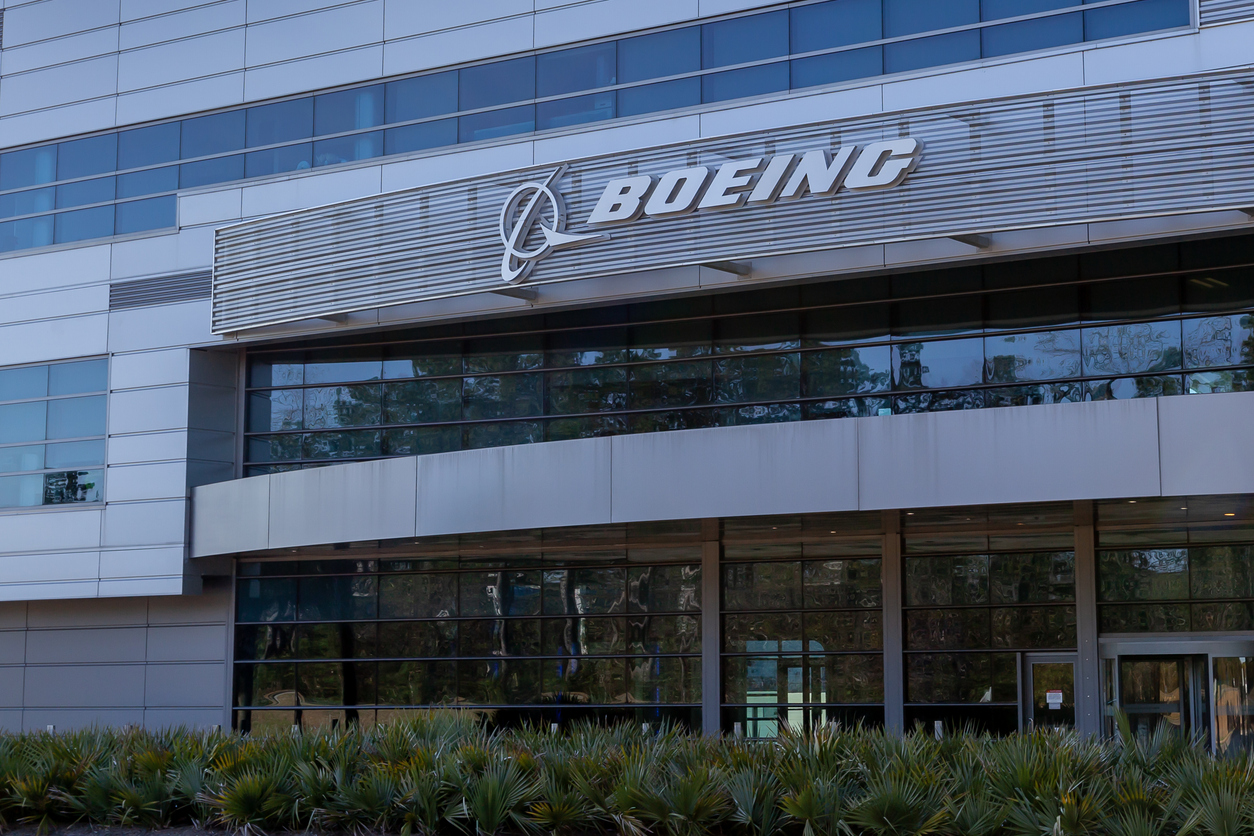Boeing CEO Dave Calhoun endured rigorous questioning from a U.S. Senate panel on June 18, 2024, focusing on the aerospace giant's safety culture and ongoing manufacturing issues. The hearing was marked by the heartfelt accounts from families impacted by prior Boeing crashes and pointed inquiries from senators, emphasizing the importance of transparent and accountable leadership communication during a crisis.
This article reviews the key moments of Calhoun's testimony and considers the broader implications for executives across various sectors. It shows how a leader's public admissions can influence public perception and a company's reputation. The session brought to light significant concerns regarding Boeing's internal operations and its handling of safety-related disclosures by whistleblowers.
The proceedings illustrated the responsibility of top executives to confront serious issues directly. The aerospace industry operates under intense public and regulatory observation, where safety is paramount. Any lapse can have severe consequences, as seen in incidents like the 2018 Lion Air crash, which tragically claimed 189 lives.
Consequently, how a CEO communicates during such situations is not merely a matter of public relations but a vital aspect of corporate governance and ethical responsibility. The fallout from these public confrontations can have long-lasting negative effects, impacting a company's market standing, employee morale, and customer trust.
The Crucible of Scrutiny: Key Moments from Calhoun's Testimony
The Senate hearing involving Boeing CEO Dave Calhoun was intense. The company's recent safety record and manufacturing standards were under close review. Calhoun faced many questions from senators who expressed deep concerns over several incidents, most notably the January 2024 door plug blowout on an Alaska Airlines Boeing 737 MAX-9 jet.
During the hearing, titled "Safety First: Restoring Boeing's Status as a Great American Manufacturer," Calhoun acknowledged the seriousness of the situation, stating, "We made big mistakes." This admission came amid an atmosphere charged with emotion, particularly with the presence of family members of victims from the 2019 Ethiopian Airlines and 2018 Lion Air crashes, which together claimed 346 lives. Their silent protest, holding up pictures of their loved ones, was a solemn reminder of the high human cost.
Senators were direct in their critique of Boeing's safety culture, with some accusing the company of prioritizing profits over safety and failing to protect whistleblowers who raised concerns. The hearing also addressed the FAA's increased oversight, with the FAA nominee, Bryan Bedford, vowing to hold Boeing accountable for its safety issues.
The discussion highlighted worries that Boeing's internal quality control processes had been compromised, leading to declining manufacturing standards. For instance, Boeing faced a $2.5 billion fine in 2021 for withholding information from U.S. security agencies related to previous crashes. The hearing further examined allegations that workers felt pressured to speed up production—a claim Calhoun denied. However, he admitted to a lax safety culture.
The intensity of the hearing was clear, with senators pressing Calhoun on specific actions the company was taking to correct the identified deficiencies. Despite some acknowledgments of past errors, substantial skepticism remained about Boeing's commitment to substantially improving its safety practices. The repeated focus on accountability and efforts to prevent recurrence underscored the erosion of trust that Boeing now faces from regulators, lawmakers, and the public. The company's stock value has also reflected these concerns, with significant drops reported following safety incidents.
Analyzing the Communication Strategy: Hits and Misses
Dave Calhoun's appearance before the Senate panel was a critical test of his communication strategy under immense pressure. One notable aspect was his public apology to the families affected, turning to face them in a moment that received widespread media attention. This gesture, while important, was juxtaposed against ongoing criticism of the company's broader transparency and responsiveness. His admission of "big mistakes" was a significant concession. Yet, some observers noted it came later than expected, given Boeing's long-standing safety challenges.
The effectiveness of such statements hinges on their perceived sincerity and the concrete actions that follow. A 2023 report by Edelman found that trust in CEOs is heavily influenced by their willingness to address societal issues and take responsibility for errors, with 66% of global respondents expecting such accountability.
However, the communication strategy was criticized for appearing defensive, particularly regarding the speed of change and the thorough handling of whistleblower allegations. While Calhoun outlined actions Boeing is taking to improve quality control and safety management, the challenge remains in convincing stakeholders that these measures are robust and sustainable. The hearing revealed a gap between the company's internal narrative of progress and the external perception of ongoing problems.
This underscores how crucial clear, well-crafted messaging is for CEOs during high-pressure public situations. For leaders in similar positions, using a professional content writing service can be useful in preparing accurate, compliant statements that resonate authentically with various audiences, from regulators to the general public.
The contrast between Boeing's approach and that of other public figures during crises offers valuable insights. For instance, the public criticism faced by Union Civil Aviation Minister K Ram Mohan Naidu for sharing an edited, "cinematic" video of his visit to an Air India crash site serves as a warning. That incident was considered tone-deaf during a national tragedy, emphasizing the need for genuine and unfiltered communication over polished public relations.
Similarly, Boeing's situation requires a communication approach prioritizing factual transparency and empathetic engagement. The ongoing efforts to rebuild trust will depend on consistent, verifiable actions paired with a communication style that directly addresses concerns and demonstrates a commitment to change.
Broader Implications: Lessons in Leadership and Public Trust
The challenges Boeing and its CEO face carry significant lessons for leaders in any industry regarding the impact of crisis management on public trust and corporate reputation. When a company in a safety-critical sector experiences serious failures, the CEO's response becomes pivotal.
Top executives must address these issues with candor and provide clear action plans. Investors, regulatory bodies, and the public look to leadership for assurance that problems are recognized, responsibility is accepted, and effective corrective measures are in place. A 2024 global survey by Weber Shandwick, reported by Axios, found that 45% of a company's reputation is tied to its CEO's reputation, underscoring the significant personal accountability leaders continue to bear in shaping public perception.
The Boeing case shows that mere acknowledgment of issues is insufficient; stakeholders demand tangible proof of systemic change. For example, the company's brand perception has suffered, with polls indicating a significant drop in corporate brand rankings after a series of crises. This decline reflects a loss of confidence that can affect everything from sales and partnerships to employee recruitment and retention.
Rebuilding this trust is a long-term endeavor that requires continuous transparency and a visible commitment to the company's stated values. Leaders' public statements are closely scrutinized, and any perceived insincerity can worsen the damage to the corporate image.
External pressures further compound the challenge. The pledge by Bedford to hold Boeing accountable signals that regulatory oversight will remain strict. This external pressure necessitates a proactive approach by corporate leadership. CEOs must cultivate a culture where safety and ethical standards remain prioritized over short-term gains, with effective internal reporting mechanisms supporting those who voice concerns. Ultimately, the success of a leader in managing a crisis depends on their ability to communicate with integrity, show accountability, and drive meaningful organizational change.
Effectively managing intense public and governmental scrutiny requires a strategic approach built on proactive, honest dialogue and clear accountability. The stakes are high for companies like Boeing, which is facing inquiries from the U.S. Senate and the Federal Aviation Administration.
The first principle in managing such challenges is an unwavering commitment to transparency. Respond truthfully to direct questions and proactively share information about identified issues and the steps to address them. Regulatory bodies demand more than mere compliance; they expect a genuine safety culture.
Another key factor is establishing robust internal mechanisms to identify and address issues before they become big problems. The concerns raised by whistleblowers during the Senate hearing underscore the importance of creating an environment where employees feel secure when speaking up. Companies that manage governmental scrutiny effectively typically have clear protocols for internal investigations and a defined channel for reporting findings and corrective actions. This collaborative approach can be more productive than adversarial, provided the company demonstrates a clear commitment to improvement.
Finally, dealing with the aftermath of high-profile inquiries requires a long-term communication strategy beyond immediate crisis management. This means maintaining ongoing engagement with stakeholders such as employees, customers, investors, and the public to keep them informed on progress and reaffirm the company's commitment to its values. Consistent updates on systemic reforms are essential, as these efforts must be validated through transparent reporting and measurable performance improvements.
Lessons in Leadership from the Boeing Crisis
How a company communicates during a crisis can shape its reputation, financial stability, and stakeholder relationships for years. In Boeing's case, the fallout from safety failures and CEO Dave Calhoun's Senate testimony will likely reverberate long after headlines fade. While falling stock prices are an immediate consequence, the broader costs—lost orders, rising insurance premiums, and regulatory penalties like the $2.5 billion fine in 2021—highlight the high stakes of crisis mismanagement.
One of the most lasting impacts is on brand trust. When communication feels defensive or opaque, it erodes public confidence and makes recovery slow and difficult. By contrast, companies that lead with transparency, accountability, and empathy are more likely to rebuild their reputations. That recovery depends on public statements and visible, sustained efforts to learn from mistakes and implement real change.
Effective crisis communication must be more than a PR function—it must align with core operations and values. Ongoing scrutiny from regulators like the FAA ensures that safety and accountability remain non-negotiable. The tragedies of the 737 MAX crashes and the recent Alaska Airlines incident are sobering reminders of what's at stake. In such moments, communication becomes a test of leadership, not just about managing optics but about reaffirming a company's commitments and rebuilding credibility.
Calhoun's appearance before the Senate underscores this. His performance offers a clear lesson: communication is not optional in a crisis—it's leadership in action. Owning mistakes, responding transparently, and committing to long-term solutions are essential for damage control and defining a leader's legacy and a company's future.












